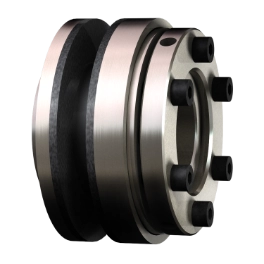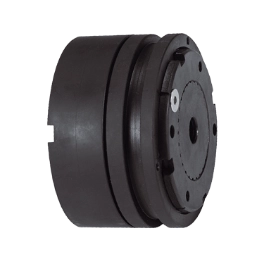Torque limiters / overload couplings
What are mechanical safety couplings used for?
The mechanical safety coupling is also referred to as torque limiter or overload coupling.
In drive technology, this refers to a machine element limiting the torque in the drive train to a maximum figure or fully interrupting the torque flow in case of downtime of the machine.
That way overload couplings are able to protect machine components against damages, e. g. collisions by programming or operating errors.
Longer downtimes, expensive repairs and resulting costs are avoided.
What operating principles are there?
Generally we classify our torque limiters into two operating principles.
The frictionally engaged, load-holding torque limiters (RUFLEX) and the positive-locking, load-separating ball engagement systems (e. g. SYNTEX and KTR-SI).










